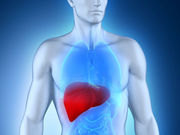More patients undergo screening when they receive mailed invitations for screening examination
WEDNESDAY, Nov. 30, 2016 (HealthDay News) — Outreach programs can increase hepatocellular carcinoma (HCC) screening rates among patients with documented or suspected cirrhosis, according to a study published online Nov. 5 in Gastroenterology.
Amit G. Singal, M.D., from the UT Southwestern Medical Center in Dallas, and colleagues performed a prospective study involving 1,800 patients with documented or suspected cirrhosis. Patients were randomized in a 1:1:1 ratio to receive mailed invitations for an ultrasound screening examination, to receive mailed invitations for an ultrasound screening examination and patient navigation (assessment of barriers and motivational education for patients who refused screening), or to usual care. Up to three reminder calls were made to patients who did not respond to outreach invitations.
Cirrhosis was documented and suspected in 79.6 and 20.4 percent of participants, respectively. The researchers found that the proportion of patients who underwent HCC screening was significantly greater among those who received the mailed invitation and navigation or the mailed invitation alone versus usual care (47.2 and 44.5 versus 24.3 percent, respectively; P < 0.001 for both), in an intent-to-treat analysis. There was no significant difference in screening rates between the outreach groups (P = 0.25). The effects of the outreach program were consistent across subgroups analyzed.
“In a prospective study, we found outreach strategies to double the percentage of patients with cirrhosis who underwent ultrasound screening for HCC,” the authors write. “However, adding patient navigation to telephone reminders provided no significant additional benefit.”
One author disclosed financial ties to the pharmaceutical industry.
Full Text (subscription or payment may be required)
Copyright © 2016 HealthDay. All rights reserved.








